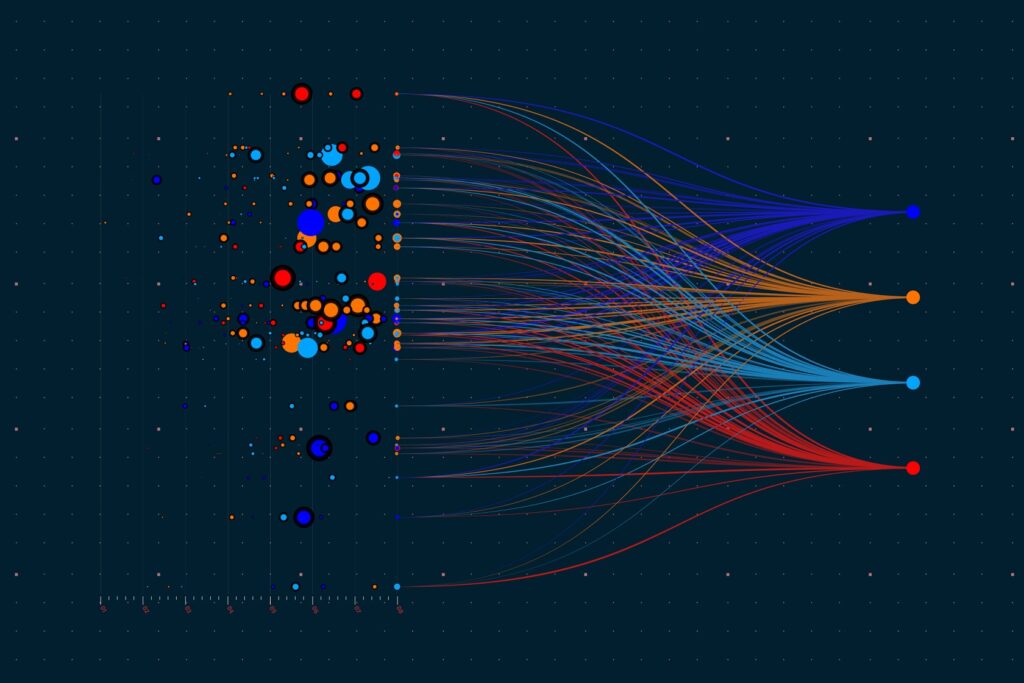
Recent data from Glassdoor indicates that ‘Data Scientist’ was the most sought-after role in the US for four consecutive years. What’s more, the role is increasingly identified as essential for business growth. But what exactly does the role of a Data Scientist entail, and why has it become so important? And what will formalising the profession and introducing an industry-recognised certification programme do for professional development within this field?
The business case for data science
Fundamentally, data scientists work with business leaders and key decision makers to solve problems by preparing, analysing, and understanding data. They are then able to predict trends, provide insight and make recommendations to achieve the best business results.
Traditionally, data scientists have come from academic backgrounds in a quantitative discipline such as mathematics, statistics, operations research, machine learning, or economics. But more recently, many universities have begun to offer specialised degrees in “data science” or “analytics”.
IDC has reported that the global volume of data generated is set to increase tenfold, to 175 zettabytes (ZB) a year by 2025. Sixty percent of this data will be created and managed by organisations, and so therefore data scientists will be crucial to make sense of it and drive business value.
Clearly, those enterprises that invest now in the skillsets and tools that can understand the data and provide insight are naturally better positioned for growth. The increasing amount of data outlined by IDC will, in turn, only increase the demand for data science professionals with relevant skills such as problem solving and the ability to identify new opportunities.
Data scientists use a variety of data platforms and programming languages. Data science applications range from traditional transaction analytics to natural language processing and computer vision. The results can vary by sector. For instance, in healthcare data scientists are using cognitive computing technologies to help support physicians who deliver personalised and precision medicine.
A level of business acumen is an important skill that data scientists need to cultivate. Not only will they be in a position to identify a business-specific problem and formulate a hypothesis, but they will also be able to test conclusions and determine appropriate methods to influence strategic choices. To then take this to the boardroom and effectively relay the findings requires vital storytelling skills to provide solid consulting, communication and visualisation for business leaders.
IDC has reported that the global volume of data generated is set to increase tenfold, to 175 zettabytes a year by 2025
Recognising the value of data scientists
It’s important to recognise that data science is a relatively new profession, and one that’s becoming more accessible. On the one hand, experienced technical professionals can see the opportunities that data science offers and choose to reskill. While on the other hand, many young professionals are attracted to the role as a result of its growing business importance, ability to impact results, and lucrative salaries.
Having several career paths available for those wanting to access the profession is helpful given the current talent shortage. The data science landscape is evolving at an incredible speed and organisations can be left struggling to identify, train, and retain employees – especially given the disparity in the experience and skills that individuals can have across the profession.
To ensure consistency, compliance, and service quality across the board, a global certification programme is essential for the data scientist profession, especially given the mission critical nature of the support that they provide to organisations. This framework would not only provide guidance around how a certification can be used and recognised by world leading organisations, but would also give employers an objective, reliable measure of a candidate’s skills and qualifications – equipping them with the tools to provide a better path for career progression.
Creating a certification programme
A certification programme presents data scientists with an opportunity for enhanced value and visibility, and is a way for candidates to differentiate themselves as an experienced professional with proven results. For businesses, certification also helps identify the best candidates for highly valuable roles, while ensuring that current or prospective employees are working to the high-standards that are required.
Similar certification programmes have already been successful in a variety of professions, such as for Business, Enterprise and Solution Architects who can attain a specific, peer-reviewed, vendor-neutral and globally recognised credential through The Open Group OpenCA programme. Now for the first time, working with IBM, The Open Group and its members have developed the Open Data Scientist certification programme which is already available.
Another proof point for the value of these programmes includes a recent study, ‘Facing the storm: Navigating the global skills crisis’. This found that when it comes to the development of policies that bolster labour market competitiveness, certification programmes have the third highest impact. Yet, at 24% adoption, the business community has yet to adopt the tools and practices needed to address existing technical skills shortages.
Looking ahead
A data science certification programme will give all organisations the tools needed to begin extracting insights from their growing data volumes and start making data-driven decisions. In addition, as artificial intelligence continues to permeate all aspects of business, demand for these skills and practices will continue to grow. Ultimately, a certification programme will arm organisations in the fight for the best talent, but will also make sure that data scientists have the skills needed to fulfill this vital business requirement.
Martin Fleming, VP, chief economist and Maureen Fitzgerald Norton, global data scientist profession leader, IBM Corp


